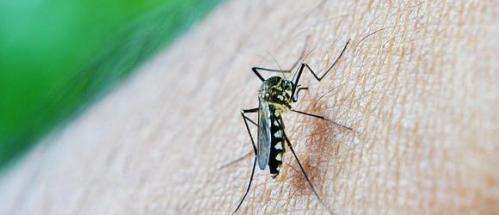September 29, 2014 report
Long term genetic study finds geographical differences in human immune response to malaria

(Medical Xpress)—A large team of researchers with members from around the globe has found evidence that appears to show that humans living in different physical locations have evolved different mechanisms for staving off the dreaded disease malaria. In their paper published in Nature Genetics, the team describes a decade long study they undertook that involved collecting gene samples from people in many nations where malaria is still killing a lot of its victims, and what they found when they analyzed those samples.
Sadly, malaria tends to most heavily impact people in places where poverty is rampant, and healthcare is severely limited—places like many Asian and African countries and Papua New Guinea—all told it takes the lives of approximately half a million people every year. But even in the hardest hit areas, there are people who are completely immune to the parasite—seemingly, miracles among the horde. In this new effort, the researchers found that people who are immune to malaria in different countries, have different mechanisms in their bodies that help them ward off the disease—they've evolved different immunity responses. And that, the team is hoping, may be the key to learning how to better combat the disease.
The researchers collected gene samples from 12,000 people living in 11 different countries—looking for specific genetic markers known to help people ward off malaria. In so doing, they found that there were several markers in people from certain geographic areas that were tied to an immune response that was successful in warding off malaria, but not in other areas. As one example, they noted genetic mutations in people living in Papua New Guinea that helped protect against malaria that were not present in people living in Africa.
The team is hoping that by comparing the different types of immune responses by people in different areas, they will be able to isolate the different ways in which the body responds successfully to an attack and as a result will come to better understand how the body fights off the disease—and hopefully use what they learn to come up with a way to make it happen in people that aren't naturally immune.
More information: Reappraisal of known malaria resistance loci in a large multicenter study, Nature Genetics (2014) DOI: 10.1038/ng.3107
Abstract
Many human genetic associations with resistance to malaria have been reported, but few have been reliably replicated. We collected data on 11,890 cases of severe malaria due to Plasmodium falciparum and 17,441 controls from 12 locations in Africa, Asia and Oceania. We tested 55 SNPs in 27 loci previously reported to associate with severe malaria. There was evidence of association at P < 1 × 10−4 with the HBB, ABO, ATP2B4, G6PD and CD40LG loci, but previously reported associations at 22 other loci did not replicate in the multicenter analysis. The large sample size made it possible to identify authentic genetic effects that are heterogeneous across populations or phenotypes, with a striking example being the main African form of G6PD deficiency, which reduced the risk of cerebral malaria but increased the risk of severe malarial anemia. The finding that G6PD deficiency has opposing effects on different fatal complications of P. falciparum infection indicates that the evolutionary origins of this common human genetic disorder are more complex than previously supposed.
© 2014 Medical Xpress


















